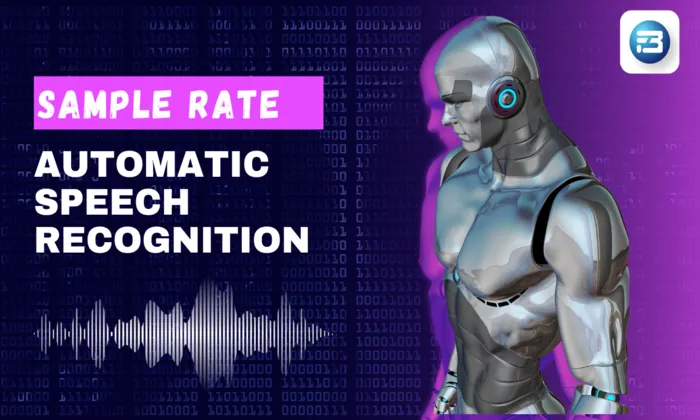What are the research trends in conversational healthcare AI?
NLP
Healthcare
Conversational AI
Conversational healthcare AI is advancing rapidly, driven by technology and the need for effective patient engagement. This progress is marked by key research trends reshaping healthcare interactions. Understanding these trends is crucial for AI engineers, product managers, and innovation leaders aiming to create impactful conversational AI systems.
The Shift Towards Personalization and Contextual Understanding
Personalization is a major trend in conversational healthcare AI, focusing on tailoring interactions to individual patient needs and preferences. This approach enhances patient satisfaction and improves health outcomes by making interactions more meaningful.
- Why Personalization Matters: Personalized interactions lead to better adherence to treatment plans and greater patient engagement. For example, AI systems that recall patient preferences or previous interactions can offer tailored responses, fostering a sense of value and understanding.
- How It Works: Healthcare AI systems achieve personalization by integrating data from electronic health records (EHRs) and previous conversations. This data enables AI to deliver context-aware responses that resonate with each patient's unique situation.
Multi-Modal Communication Capabilities
Conversational AI systems are expanding beyond voice to include text, visual aids, and other modalities, catering to diverse patient preferences.
- Importance of Multi-Modal Interfaces: Patients choose different communication modes based on their circumstances. For instance, someone may prefer texting during a busy day but opt for a voice call for detailed discussions. Multi-modal capabilities ensure AI systems adapt to these preferences, enhancing accessibility and user experience.
- Implementation Considerations: Integrating various communication modes requires robust speech annotation and processing. AI systems must be adept at recognizing and responding across formats, involving natural language processing (NLP), computer vision, and user interface design.
Focus on Empathy and Emotional Intelligence
Empathy and emotional intelligence are becoming central to conversational healthcare AI. Research shows that empathetic interactions lead to better patient responses and compliance.
- Why Empathy is Key: Empathetic interactions build trust, crucial for effective healthcare delivery. For example, an AI system recognizing emotional cues can offer support or prompt patients to express their feelings, leading to a holistic care approach.
- Technological Approach: AI systems utilize sentiment analysis and emotion detection to cultivate empathy. By analyzing speech patterns and language, AI can gauge emotional states and adjust responses accordingly.
Ethical Considerations and Compliance
As conversational healthcare AI integrates into clinical workflows, ethical considerations and compliance with regulations like HIPAA and GDPR have become paramount.
- Why Ethics Matter: Healthcare data's sensitive nature demands a strong ethical framework to protect patient information. Breaches can result in loss of trust and legal issues.
- Balancing Innovation and Ethics: Developers explore creating simulated datasets that mimic real interactions without compromising privacy. This approach allows for realistic AI training while adhering to ethical standards.
Integration of Voice and Speech Recognition Technologies
Advancements in voice and speech recognition are significantly impacting conversational healthcare AI, enabling seamless patient interactions.
- Impact of Speech Recognition: Enhanced speech recognition facilitates real-time conversation transcription, simplifying documentation for healthcare providers and improving record accuracy.
- Challenges to Address: Despite progress, challenges remain in understanding accents, dialects, and non-standard speech patterns. Ongoing research is essential to ensure effective communication with diverse patient populations.
Looking Ahead: Innovations Shaping Conversational Healthcare AI
Future innovations could further transform conversational healthcare AI, such as integrating machine learning for predictive analytics and leveraging virtual reality for training.
- Why These Innovations Matter: Predictive analytics can identify at-risk patients, enabling proactive intervention. Improved natural language understanding supports deeper conversations, while virtual reality enhances training for healthcare providers.
- Strategic Considerations for Teams: As innovations unfold, teams must remain agile and open to new technologies. Collaborating with healthcare professionals during development ensures solutions address real-world needs and challenges.
Key Takeaways on Trends in Conversational Healthcare AI
Conversational healthcare AI is dynamic, shaped by personalization, ethical considerations, multi-modal capabilities, and emotional intelligence. Staying informed about these trends is essential for developing solutions that enhance patient care and engagement. Embracing these changes will improve AI systems' efficacy and transform the healthcare experience for patients and providers alike.
For healthcare projects requiring robust conversational AI datasets, FutureBeeAI's expertise in AI data collection and annotation offers a reliable foundation. Our simulated, multilingual datasets ensure compliance and accuracy, supporting the development of next-generation healthcare AI systems.
Smart FAQs
Q. How does conversational AI improve patient engagement?
Conversational AI enhances patient engagement by offering personalized interactions that cater to individual preferences and needs. This allows timely communication, enabling patients to receive information and support in their preferred manner.
Q. What role does data privacy play in the development of healthcare AI?
Data privacy is crucial in healthcare AI development to ensure compliance with regulations and maintain patient trust. Ethical frameworks facilitate realistic data usage while protecting sensitive patient information.
What Else Do People Ask?
Related AI Articles
Browse Matching Datasets
Acquiring high-quality AI datasets has never been easier!!!
Get in touch with our AI data expert now!








